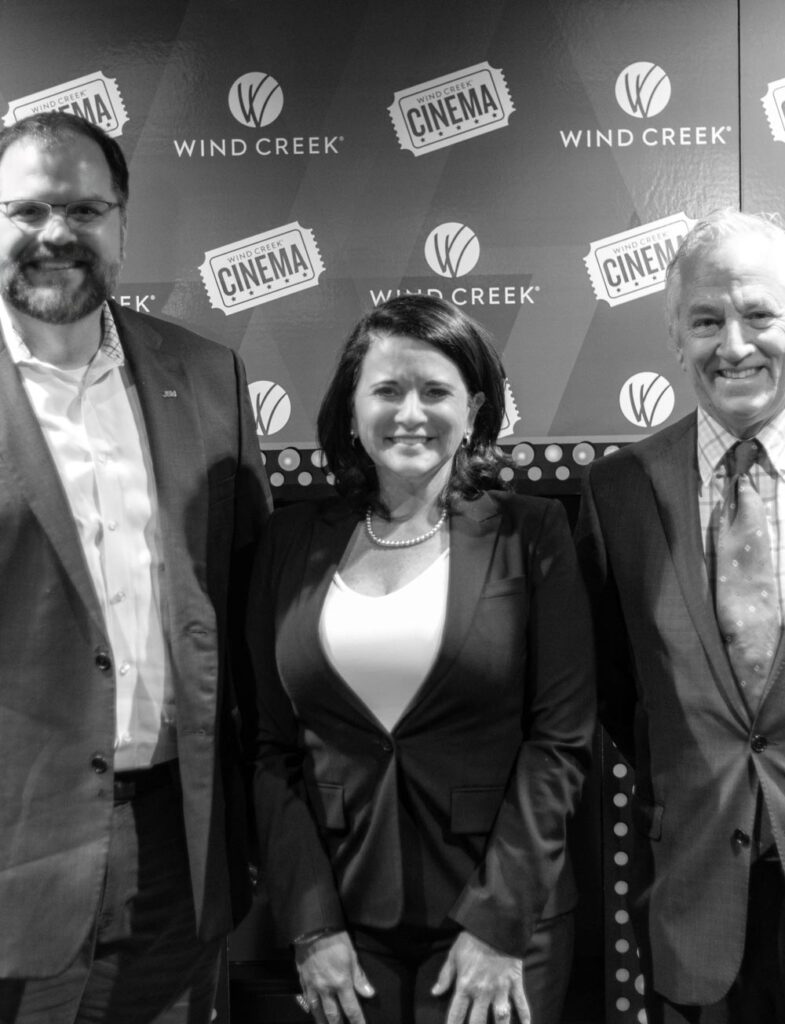
When executive producer Seth Johnson first set out to make “The Forgotten Creeks,” a documentary film about the Poarch Creek Indians, what he knew about the Tribe amounted to this: They were based in Southern Alabama and operated casinos. “That’s all I knew,” concedes the Assistant Dean of the College of Arts and Humanities at Jacksonville State University in Alabama.

But Johnson had always been curious to learn more about the role of Alabama’s indigenous community, and when Alabama Public Television commissioned him and Longleaf Studios, JSU’s student-staffed production studio, to make an educational film about Creek Indian history, he leapt at the chance.
Two years, dozens of interviews, and months of archival research later, Johnson now knows the Tribe as an exceptionally resilient, accomplished, and philanthropic force in the state — a culturally rich group whose ancestors overcame centuries of deprivation, discrimination, and displacement to arrive at the self-sufficient, prosperous place they are today. And, thanks to “The Forgotten Creeks,” thousands of other Alabamians have an opportunity to learn about the Tribe’s poignant, powerful history, as well.

Blending illustrative cinematography, rare historical archival material and compelling interviews, the film traces the Tribe’s journey from the Spanish occupation in the 1500s through the Indian Removal Act of 1830, the Jim Crow years, and the ultimate fight for federal recognition in 1984. It also captures the remarkable determination of Poarch people to protect their culture, heritage, and values.
“The really interesting part to me,” says Johnson, “was what the Poarch people had to endure from the late 1800s through the 1960s and beyond — the discrimination, the struggle and the strife.”

A professor himself, Johnson was also deeply moved by the stories he found in the Poarch archives that illustrated how challenging it was to get an education in the segregated South. “That struck a chord with me,” he says. Up until the 1950s, Tribal citizens were not permitted to attend public schools. But even after integration, Poarch citizens faced hurdles in their effort to access education. One Tribal citizen, Jack Daughtry, famously stood in the middle of the road to force a school bus to stop and take his daughters to school. Director of Tribal Emergency Services, April Sells, recounted that her grandmother, who yearned to become a meteorologist, wasn’t able to earn a high school equivalency degree until she was in her 50s, in part because the Indian school she attended ended at the sixth grade.

Education emerges as a strong theme in the film — intentionally so. Time and again, Tribal citizens interviewed — many of whom hold advanced degrees from leading schools and Ivy League universities — became emotional discussing the life-changing impact that educational access has had on the Poarch community. Given the challenges that faced past generations, the Tribe’s commitment to helping students in the future runs deep. Johnson says he was particularly inspired to learn that the Tribe has created a fund that makes it possible today for every Poarch citizen to go to college.
To bring the Tribe’s history to life, the documentarians interviewed, among others, Tribal elders and descendants of Calvin McGhee, the single-minded sharecropper who led the successful years-long drive to have the Poarch Creek Indians recognized by the federal government of the United States. The film includes extraordinary footage showing the former chief, in full regalia, meeting with President John F. Kennedy in 1962 when the federal government awarded Poarch, as well as other Native American Tribes, financial compensation for millions of acres it had wrongfully seized in the 1800s.

“Just hearing all of these personal accounts, you could sense the pride and the struggle and the amount of energy and effort that Poarch put into the federal recognition effort,” says Johnson. “I came away extremely impressed with their drive, ambition and work ethic.”

The film premiere, held at Wind Creek Casino Entertainment Center in Atmore, Alabama, was a special day for Johnson, his production team and participating JSU students. It was also a celebratory moment for the Tribe, whose rich culture and evolution as a sovereign Nation will now be more widely shared and appreciated by its neighbors across the state of Alabama.
For Tribal Bill Pay login assistance, contact Candy Byrd at (251) 368-9136 ext 2006 or cbyrd@pci-nsn.gov
The Roundhouse is accessible to Tribal Citizens and Tribal Government Employees only. For login assistance, please email theroundhouse@pci-nsn.gov or call Sharon Delmar at (251) 368-9136 ext 2216